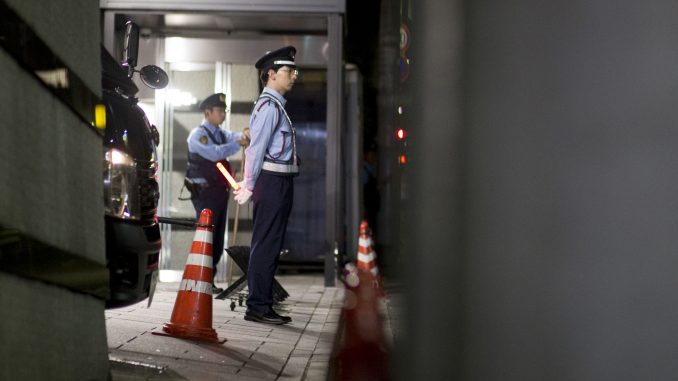
When Alexander Gonzalez first moved to Sasebo, Japan in 2013, he was an intelligence specialist for the United States Navy.
Gonzalez — now a junior international affairs and political science major at Temple University Japan — was tasked with monitoring the military capabilities of North Korea.
“At the time, North Korea’s missile and nuclear capabilities were not threatening,” Gonzalez said. “Granted, they have improved since 2013 but that doesn’t necessarily mean that the rest of the world should be fearful.”
North Korea has now launched two intercontinental practice missiles over the northern part of Japan that landed in the Sea of Japan: the first on Aug. 29 and the second on Sept. 14. Yet, despite these events, Gonzalez, his peers and his professors at TUJ have remained calm.
“There was an initial shock, of course,” said Bruce Stronach, TUJ’s dean. “But we were able to react to the situation as it was.”
Stronach added that an email was sent to the 1,118 students at TUJ, 78 of whom are studying abroad, on Aug. 29. The email stated that TUJ was abroad, on Aug. 29. The email stated that TUJ was monitoring the situation closely through International SOS, a security and travel assistance company that TUJ works closely with. The email also highlighted emergency procedures that TUJ and the city of Tokyo have in place, like the area’s J-alert, which announces the detection missile activity.
“Some families have expressed concern,” Stronach said. “But as far as I am concerned, very few students are fearful and classes have continued as usual.”
On the day following the second missile overflight, James Brown, a professor of international politics at TUJ, conducted his class the way he always has — with a discussion about international relations.
“We treated this event as we would any other sort of world event,” Brown said. “We are discussing the climate around these situations, such as what motivates North Korea to behave the way it does and not about the overflights themselves.”
Brown said it is important to understand that the North Korean missiles are passing at about 100 kilometers above northern Japan, which is nearly in space.
Brown also works as a program coordinator with International Affairs at TUJ and said that the missile overflights have been more sensationalized in the United States than they have in Japan.
“Nothing has really changed about Japan’s relationship with North Korea,” Brown said. “There has always been tension between the two states, but everything has remained relatively relaxed here. They have always had the range to reach Japan and have even launched a missile toward Japan several years ago.”
Brown said what has changed is that North Korea now has the range to reach the U.S. with missiles. He added that this development may be why there is more panic in the U.S. than there is in Japan.
“What is concerning is that there are two trains on a track headed toward one another: Kim Jong-un with his rogue nature and [President Donald] Trump with his antagonistic dialogue,” Brown said.
Although Brown does not believe North Korea will ever launch a missile that will strike land, he said the Japanese government is asking all institutions within the country to think differently about North Korea, given the current nature of its relationship with the U.S.
“I think it’s good that people are starting to think differently about North Korea,” Gonzalez said. “They are led by an unpredictable leader who probably wouldn’t launch toward land, but should not be provoked.”
Nonetheless, Gonzalez believes that there is still an uneasy feeling among some TUJ students.
He said that many of the students are not familiar with North Korea’s actual missile capabilities and have never thought twice about North Korea and its international relations.
“The mention of a missile is enough to make anyone a little anxious,” Gonzalez said. “I think that there needs to be an ongoing dialogue between students and faculty at TUJ about what North Korea is actually capable of, especially with those who are not taking classes in the political or international arena at TUJ.”


Be the first to comment